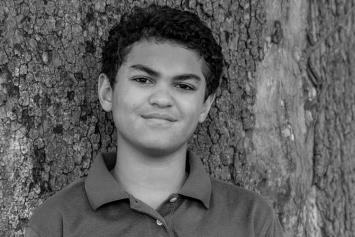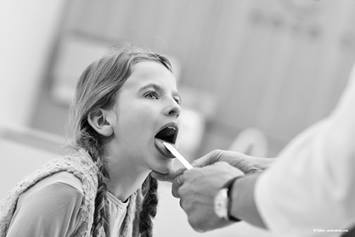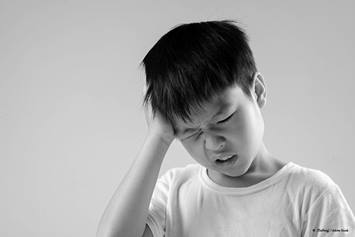Headaches in Children
Headaches are common in children and teens. Learn more about the types and how they are treated.
Headaches are common in children and teens. There are many types of headaches. Each type has their own treatment. Your child’s doctor or health care provider will review their history and do a physical exam to see what type(s) of headache they have.
| Type of Headache | Common Symptoms |
| Migraine |
|
| Tension | Mild or medium pain that feels like a tight band around the head or other areas of the head |
| Caused by infection |
Head pain along with fever or other sick symptoms |
- Do not give your child aspirin, ibuprofen (Motrin®, Advil®), or naproxen (Aleve®, Naprosyn®). These may make bleeding worse.
- Only give acetaminophen (Tylenol®), meloxicam (Mobic®), or celecoxib (Celebrex®) for pain or fever.
- Check the label on over-the-counter cold, flu, and pain medicines. These may contain aspirin or ibuprofen.
- Tell your child’s doctor, health care provider, or hematologist if they’re using herbal remedies or over-the-counter medicines.
- Contact the hemophilia center if your child needs surgery or dental work.
- Your child should get vaccines recommended by their doctor or health care provider.
- Check with your child’s hematologist before they start any sports or intense activities.
- Have your child wear medical identification (ID). This can be a bracelet, necklace, or sports band. This lets others know about their condition in emergencies.
When to Call the Doctor
Call your child’s doctor, health care provider, or hematologist if they have:
- Been hit hard on their head or neck.
- Nosebleeds that last more than 15 minutes or happen more often.
- Menstrual periods that are heavier than normal or last more than 7 days, or if they’re passing clots bigger than a quarter.
- Bleeding from the mouth, lips, or gums that lasts more than 15 minutes after applying pressure and ice.
- Small cuts that bleed for more than 15 minutes or are not controlled.
- Blood in their pee (urine) or poop (stool).
- A procedure, surgery, or dental work scheduled.
- Any side effects that aren’t getting better.
- Signs or symptoms of iron deficiency like headaches, pale skin, dizziness, or craving unusual foods, like ice chips or clay.
- Swollen, tender, warm, painful, or stiff joints.
- Severe back pain.
- A raised bump under the skin.
Helping Hands™ Patient Education Materials
Helping Hands™ are easy-to-read guides about different illnesses, therapies, surgeries, and more. They’re created by the Patient Education team at Nationwide Children’s Hospital and are reviewed and approved by clinical staff, like nurses, doctors, pharmacists, and psychologists. Nationwide Children's Hospital is not responsible for misuse of information in patient education materials, including Helping Hands.
HH-I-175 | ©2006, revised 2025, Nationwide Children’s Hospital



